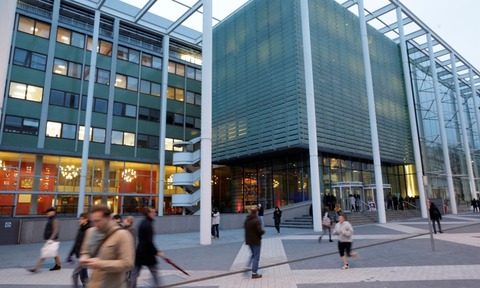LAB ROUNDUP 24 July – donations, collaborations, partnerships and appointments
23 Jul 2023

Bangladeshi entrepreneur Safwan Sobhan has donated £1 million to Imperial College London's National Heart and Lung Foundation to support research on heart disease, including the development of biomarkers for cardiovascular risk assessment. The funding will also establish a five-year fellowship for postdoctoral research, enhancing diagnosis and care in cardiovascular medicine.
Arrayjet and Chemspace are to collaborate on small molecule microarray (SMM) services. The collaboration allows Arrayjet's customers to access Chemspace's catalogue of compounds for improved assay development and screening. SMMs, based on advanced inkjet technology, enablee high-throughput screening of compound libraries against targets of interest, bridging the gap between animal and human systems without live animal testing.
Applied Materials and Fraunhofer Institute will partner to create Europe's largest semiconductor metrology and process analysis hub in Dresden. This technology hub, located in Silicon Saxony, will be equipped with state-of-the-art eBeam metrology equipment to advance semiconductor research. The collaboration aims to bolster scientific discovery and optimise semiconductor manufacturing processes.
Professor Peter Parker and Dr Jason Imbriglio have joined PhoreMost’s Scientific Advisory Board. The company said their expertise in translational oncology and targeted protein degradation would strengthen PhoreMost's pipeline of novel E3 ligase-based degrader therapeutics within oncology.
The Royal Marsden NHS Foundation Trust is collaborating with Automata to enhance cancer screening capacity using automation. The technology will allow expanded testing, personalised treatments, and genetic screening based on inherited mutations, all contributing to improved cancer care.
Medilink Midlands said achieving £3.5 million in grants means it has leveraged £47 of private investment for every £1 of public funding. It said the innovation support provided by itsMedilink Midlands advisers to regional life sciences organisations further reinforced the successes achieved under the ERDF funded programs.
The Medical Research Council has granted £2.4 million for three studies on Attention Deficit Hyperactivity Disorder to gain a better understanding of the condition, especially in women. These projects will identify more people at risk, allowing earlier interventions for effective management of ADHD.
NK:IO has secured £1.6 million in grant funding from Innovate UK's New Cancer Therapeutics program. The funding will support preclinical development, including collaboration with the Cell and Gene Therapy Catapult, to advance the development of powerful, off-the-shelf cell therapies targeting solid tumors.
The Royal Veterinary College (RVC) has secured funding to establish an organ-on-a-chip facility for veterinary species. Its project will use microfluidic chips to mimic animal tissue structures, aiding the study of responses to various stimuli, such as pathogens and vaccines. This cutting-edge technology aims to reduce the need for animal testing, accelerate research, and improve knowledge of animal physiology.

